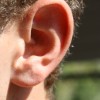Adjusting your moral compass
 It can be kind of frightening to think about it, but there really is such a thing as mind control.
It can be kind of frightening to think about it, but there really is such a thing as mind control.
Now, we are not talking Hypnotoad or Professor-X style mind control (not yet at least) but a simple experiment that demonstrates how mind and brain interact and can be manipulated.
In the study conducted by Rebecca Saxe of MIT (http://www.pnas.org/content/early/2010/03/11/0914826107.full.pdf+html)
used a technique call transcranial magnetic stimulation (TMS) to disrupt a region of the brain known as the right temporo-parietal junction (TPJ). As every child knows, one of the best ways to figure out how something works is to take it apart and put it back together. Of course, this method does not exactly work when studying the brain, however, it is possible to disrupt certain brain regions without lasting harm, and this is how TMS works. Previous studies had indicated that when people are making moral judgments, the TPJ is one of the involved regions of the brain.
In order to learn more about how the TPJ impact moral judgments, the research team disrupted it using TMS while subjects were asked to moral judgment. The moral judgments evaluated by subjects during the experiments were simple stories where one could guess the intention of one of the characters of the story, as well as evaluate the outcome.
For example, you are touring a chemical factory and made a cup of coffee for your friend. Next to the coffee machine was a white powder marked toxic. You put this in your friend’s coffee, but it turns out that it was just sugar (you thought it was toxic) and your friend was fine when she drank it.
Normally people would probably say that this was morally unacceptable, even if the outcome was ok. People who were subjected to TMS while making this judgment seemed to count the outcome of the situation as more important to their moral judgment, and did not characterize the above scenario as reprehensible as control subjects. In other words, all’s well that ends well.
Now people subject themselves to mind control all the time. People behave a certain way under the influence of alcohol as opposed to when they are sober. The same goes for television shows, and being in a group of friends. We can now add powerful magnetic stimulation to this list. While I won’t indulge in speculation on what future technologies this might be turned into by DARPA for example, I would be careful about anyone giving me a hat that requires batteries.
| Print article | This entry was posted by Jason Williams on April 6, 2010 at 11:05 am, and is filed under G2C Online. Follow any responses to this post through RSS 2.0. You can skip to the end and leave a response. Pinging is currently not allowed. |









